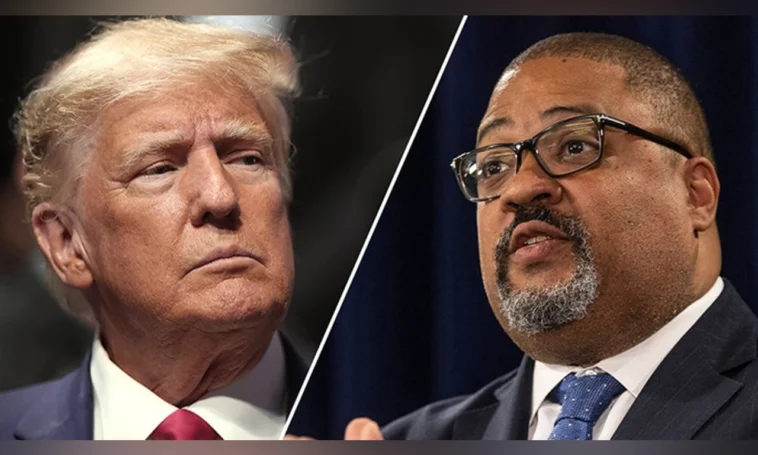Judge denies Trump’s request to dismiss Alvin Bragg charges in hush-money case. With the trial slated to commence on March 25, Judge Juan Merchan’s announcement that it is expected to last six weeks adds to the anticipation surrounding the proceedings.
As Trump made his appearance in a New York City courtroom for the Thursday morning hearing, the legal spotlight intensified on Alvin Bragg, the Manhattan District Attorney leading the charge against the former president.
Bragg’s decision to indict Trump on 34 counts of falsifying business records in the first degree in April marked a pivotal moment in his tenure, thrusting him into the forefront of a politically charged legal battle.
Trump, despite pleading not guilty to all charges, sought to have the case dismissed entirely. However, Judge Merchan’s denial of this request underscores the gravity of the allegations and sets the stage for a comprehensive examination of the charges.
Before entering the courtroom, Trump seized the opportunity to criticize both Bragg and the state of affairs in New York City, framing the charges as election interference orchestrated by the Biden administration.
“I’m here for something, it’s not a crime, it’s election interference and it’s being run by Joe Biden’s White House,” Trump said, calling it a “terrible time for our country. A real dark period.”
Trump’s characterization of the situation as a “terrible time for our country” and a “real dark period” highlights the broader implications and the polarizing nature of the legal proceedings.
The former president, not one to shy away from expressing his opinions, asserted that Biden has accomplished nothing, adding a political dimension to the already charged atmosphere surrounding the trial.
Expressing frustration at being embroiled in legal matters instead of actively campaigning, Trump emphasized the significance of the upcoming South Carolina primary on February 24.
When asked about his campaign plans during the trial, Trump confidently stated, “I’ll do it in the evening,” signaling his determination to balance legal obligations with political engagements.
The trial’s timing, just after the Louisiana primary and ahead of the GOP nominee selection polls on April 2 in Connecticut, Delaware, New York, Rhode Island, and Wisconsin, places Trump’s legal battles within the broader context of the Republican Party’s future.
The outcome of the trial could potentially influence Trump’s standing within the party and impact the political landscape leading up to the 2024 elections.
At the heart of Bragg’s allegations is the claim that Trump “repeatedly and fraudulently falsified New York business records to conceal criminal conduct that hid damaging information from the voting public during the 2016 presidential election.”
The charges specifically pertain to alleged hush-money payments made during the 2016 presidential campaign. While the legal battle unfolds, the intricacies of campaign finance and their potential impact on the electoral process will likely be under scrutiny.
It’s noteworthy that in 2019, federal prosecutors in the Southern District of New York opted not to charge Trump about payments made to adult film actress Stormy Daniels and former Playboy model Karen McDougal. The Federal Election Commission also concluded its investigation into the matter in 2021.
Bragg’s indictment, the first against Trump last year, was followed by charges in special counsel Jack Smith’s inquiry into classified records, Smith’s investigation into 2020 election interference, and January 6, as well as Fulton County, Georgia, District Attorney Fani Willis’ investigation.
Trump, unwavering in his not-guilty plea, faces a complex legal landscape with multiple legal battles converging.




One Comment
Leave a ReplyOne Ping
Pingback:Alvin Bragg to Testify Before House Committee on Trump Prosecution - Hard Knock News